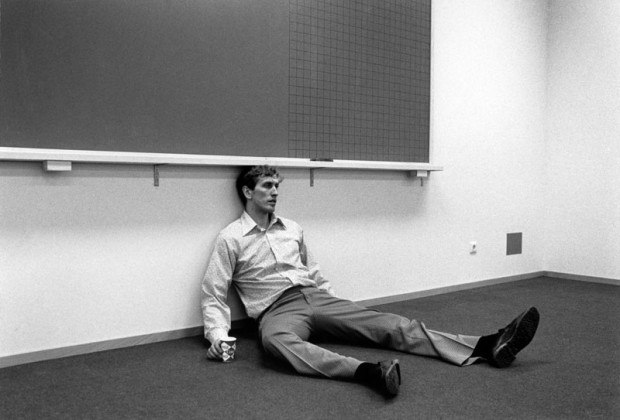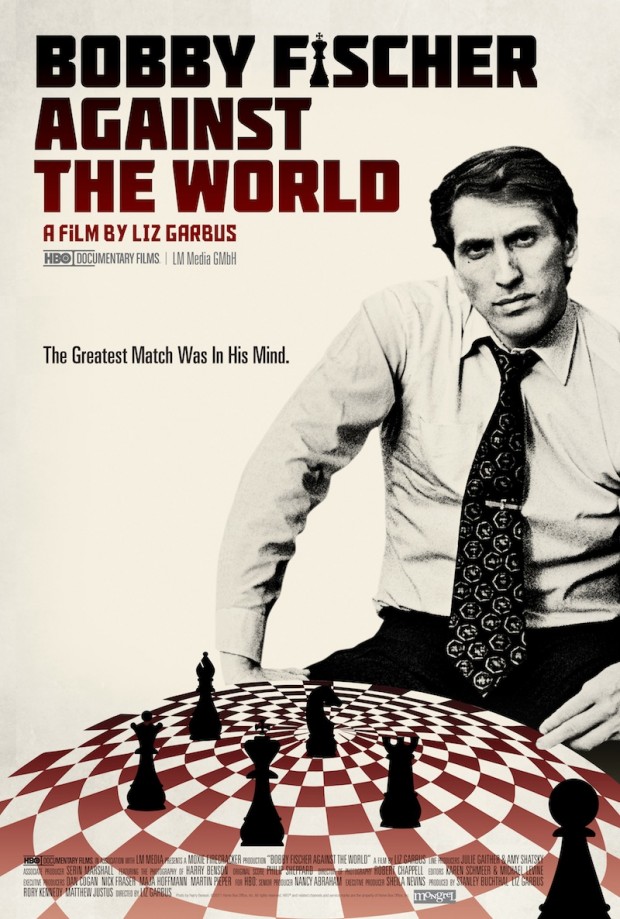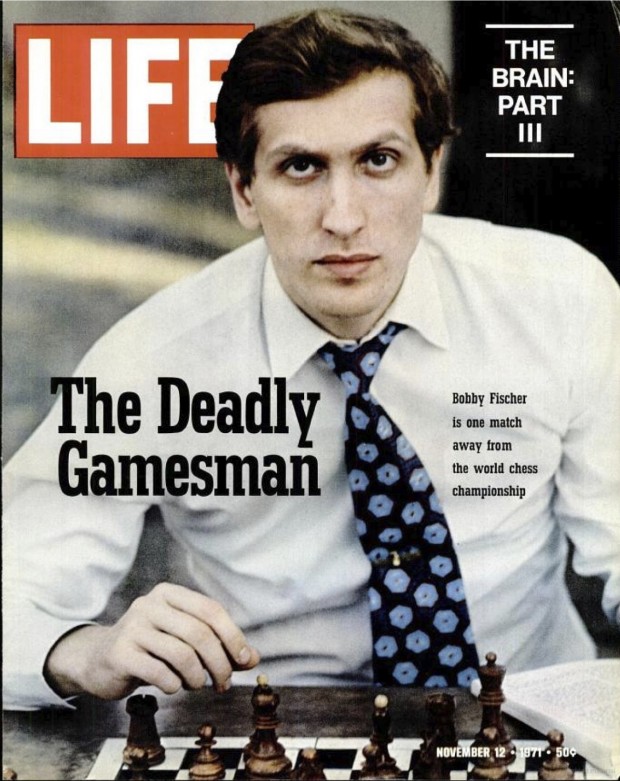An iconographic and text archive related to communication, technology and art.
☛ BobbyFischerMovie.co.uk: Bobby Fischer Against the World a documentary by Liz Garbus, 93 mins, United-States, 2011 [image source: Mongrel Media]
Anyone who has even but the slightest interest in chess know the name: Bobby Fischer. He’s as much a legend as he is a tragic figure. With this new documentary, filmmaker Liz Garbus makes an interesting attempt at providing a comprehensive introduction to the highs and lows of the only American to have ever won the World Chess Championship. It’s worth watching even for someone who’s not familiar with chess (it can be rent on YouTube). Below is an official clip from the film:
From the official press kit:
BOBBY FISCHER AGAINST THE WORLD focuses extensively on the thrilling 1972 World Championship match between Fischer and Boris Spassky. Breaking down the historic tournament game by game, Garbus deftly highlights the parallels between the 24-game marathon and the tense geopolitics of the Cold War era, with the eccentric, self-taught Brooklyn boy facing the brilliant Soviet-sponsored grand master. Televised throughout the world, the competition, which was held in Reykjavík, Iceland, became a focal point of the U.S. and Soviet Cold War tensions, which at one point required the intervention of National Security Advisor Henry Kissinger. As Kissinger explains, “The Soviets had been winning these tournaments and I thought it would be good for America, for Democracy, to have an American win.”
Garbus also documents Fischer’s later years, which were marked by disastrous choices and bizarre behavior. To the reclusive Fischer’s chagrin, his triumph over Spassky transformed him into the most famous man of his day. (Mongrel Media’s press kit: PDF)
More resources online about the film and Bobby Fischer:
- Related websites for the film: Mongrel Media, IMDb, Miracle Film Distribution, HBO (Flash is required).
- The Guardian: “Bobby Fischer Against the World – review” by Peter Bradshaw, July 14, 2011. Concluding paragraph:
One of Garbus’s interviewees compares him to Ali before the Rumble in the Jungle. Surely, a better comparison is with Glenn Gould, the great Canadian piano genius. Gould would cancel concerts if his piano stool was the wrong height; Fischer was a no-show on account of real or imagined problem. Gould withdrew from the public gaze at the height of his fame and so did Fischer. But Gould, and other geniuses from the arts and sciences, left substantial legacies behind. Fischer leaves behind … what? The memories of great matches, a residue of passion and pain. Chess consumes so much human energy and produces no monument. With its fascinating interview footage and tremendous black-and-white still photographs by Harry Benson, who was permitted great access to Fischer, this is an intriguing portrait. Its pessimism makes it a difficult watch.
- The New Yorker: “Game Theory” by Louis Menand, a review of the book Bobby Fischer Goes to War: How the Soviets Lost the Most Extraordinary Chess Match of All Time by David Edmonds and John Eidinow (2004) (Amazon).
An activity this resistant to the usual blandishments of sports journalism attracts public attention only when something besides chess seems to be at stake. No other chess match has ever come close to attracting the kind of attention that the 1972 world-championship match, between Boris Spassky and Bobby Fischer, did. It was advertised as “the Match of the Century.” It inspired a pop song, “The Ballad of Bobby Fischer,” performed by Joe Glazer and his Fianchettoed Bishops. Fischer’s face was on the cover of Life, the Times Magazine, Newsweek, Time, and Der Spiegel. Life reported on the match. Arthur Koestler wrote about it. So did George Steiner, for The New Yorker.
- To go along the release of Liz Garbus’ documentary, powerHouse Books just published a collection of 100 color and black-and-white photographs taken during the 1972 World Chess Championship by renowned photojournalist Harry Benson: Bobby Fischer (New York: powerHouse Books, 144 pages). From the editor website:
Harry Benson’s rare, exclusive photos of the elusive and controversial chess genius Bobby Fischer taken during the historic World Chess Championship match in Iceland in 1972 are collected here for the first time, in Bobby Fischer. Benson met Fischer in Argentina, during the qualifiers for the match, and followed him through his training and conditioning in New York, during the many weeks of the match, and was there in the winning moment to document Fischer’s historic victory. Fischer was a known recluse, and Benson was one of the very few people he would talk to throughout these defining moments in his life.
The editor website also featured previews of the photos, like the one shown below. The book is available at Amazon as well.

- On November 12, 1971, Bobby Fischer made the cover for the LIFE magazine (see below) which ran an article about the soon to become first American World Chess Champion: “Bobby Fischer is a Ferocious Winner” by Brad Darrach, Vol. 71, no. 20. pp. 50A-53 (Google books, PDF). The photos illustrating the cover and the article were all taken by Harry Benson.
- By Philippe Theophanidis
- on
- ― Published in Art, Movies
- Tagged: Bobby Fischer, brain, chess, documentary, Lost, mind, United-States


